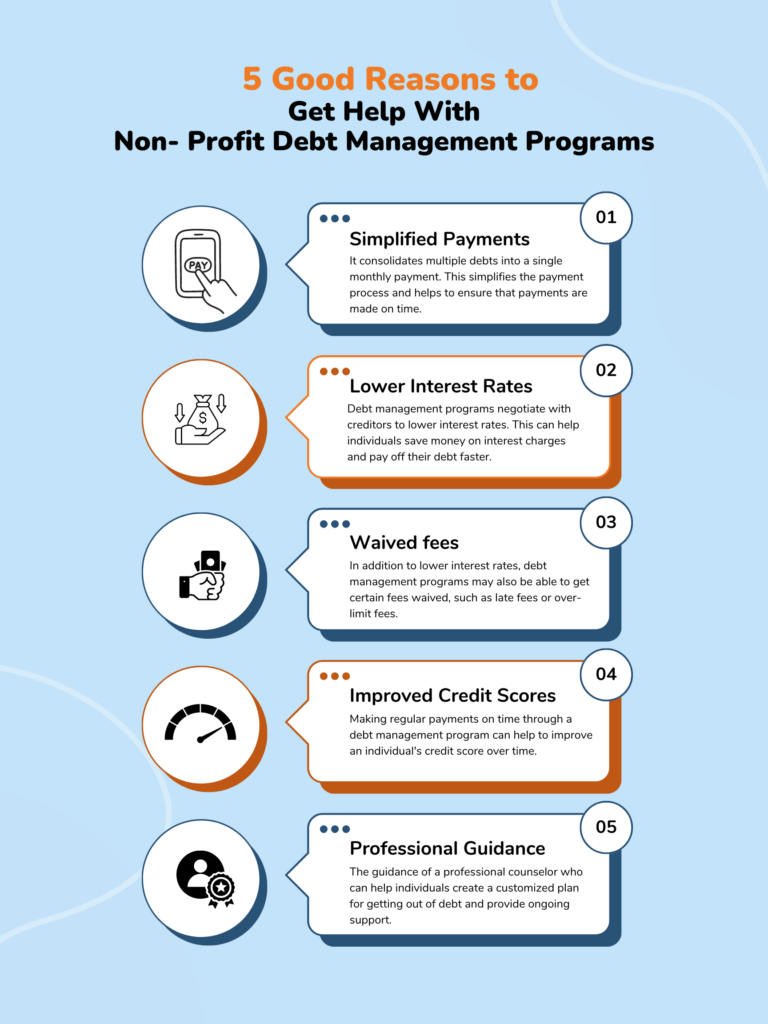Professional Tips and Strategies for Applying an Effective Debt Administration Strategy
When it comes to navigating the complexities of financial obligation administration, having a well-thought-out strategy is vital for accomplishing financial stability. From evaluating your present financial standing to negotiating with creditors, each step plays a critical role in shaping a successful debt administration plan.
Evaluating Your Present Financial Circumstance
Prior to starting a debt administration strategy, it is essential to completely review your current economic standing. Recognizing your economic scenario is the fundamental step towards successfully managing and lowering your debt. Begin by compiling a breakdown of all your financial obligations, including outstanding equilibriums, rate of interest, and minimum monthly repayments. This will give a clear introduction of the level of your financial obligations. In addition, examine your income resources and regular monthly expenditures to establish your disposable income available for financial debt repayment.

Creating a Realistic Budget
Understanding your present monetary scenario lays the groundwork for developing a reasonable spending plan that straightens with your financial debt management goals and financial abilities. When producing a spending plan, it's vital to properly track your revenue, costs, and financial obligation responsibilities. Beginning by providing all incomes, including earnings, benefits, and any type of extra incomes. Next, outline your taken care of expenditures such as lease or home mortgage payments, energies, insurance coverage, and car loan payments. Variable expenditures like groceries, enjoyment, and transportation ought to additionally be made up. By classifying your costs, you can recognize areas where you may require to cut back to maximize funds for financial debt payment.

Focusing On and Taking On Financial Obligations
To successfully regain control of your funds and work towards economic stability, focusing on and tackling your debts is an essential action in your financial debt management strategy. Determine high-interest debts that are costing you the most cash and focus on paying them off.
After identifying your high-interest financial obligations, consider utilizing approaches like the financial obligation snowball or debt avalanche technique to pay them off systematically. The debt snowball approach entails paying off the tiniest financial debts initially, while the financial debt avalanche method prioritizes financial obligations with the highest possible rate of interest prices. Pick the method that aligns best with your monetary objectives and inspires you to keep making progression.
Furthermore, consider negotiating with lenders for lower passion prices or establishing up a settlement plan if you're having a hard time to fulfill your existing obligations. Looking for aid from a credit counselor or economic expert can also supply valuable understandings and advice on how to successfully tackle your financial debts - debt resource management plan services. By focusing on and addressing your financial obligations tactically, you can lead the way towards a debt-free future and enhanced economic well-being
Working Out With Lenders
When engaging in debt management, working out with financial institutions is an essential step towards locating mutually useful options for financial obligation repayment. Prior to launching settlements, it is important to have a clear understanding of your economic circumstance, including your income, expenses, and the complete amount of financial debt owed.

Structure Healthy Financial Routines
Incorporating constant budgeting techniques is important for growing healthy and balanced financial practices. Budgeting permits people to track their income and costs, allowing them to make enlightened decisions about their monetary top priorities. Establishing specific financial goals, such as conserving for emergency situations or retired life, can provide a clear roadmap for managing money successfully.
An additional trick aspect of building healthy monetary routines is living within one's methods. This entails investing much less than what is earned and avoiding unnecessary debt. Embracing a thrifty frame of mind and differentiating in between needs and wants can help individuals make more prudent spending look at more info choices.
Frequently monitoring and assessing financial declarations credit score reports are essential practices that promote monetary understanding and obligation. By remaining informed concerning their monetary standing, individuals can identify possible problems at an early stage and take proactive actions to resolve them.
Additionally, establishing a financial savings behavior, despite little quantities, can add substantially to long-term economic protection. Conserving on a regular basis not only constructs a monetary cushion for unanticipated costs but additionally promotes a feeling of self-control and obligation in the direction of money monitoring. By constantly practicing these behaviors, individuals can lay a solid foundation for a secure monetary future.
Verdict
In final thought, implementing an effective debt monitoring plan calls for a complete assessment of one's financial circumstance, the development of a sensible budget, focusing on and tackling financial debts, bargaining with creditors, and structure healthy and balanced monetary habits (debt management plan services). By complying with these specialist suggestions and methods, people can take control of their financial resources and work in the direction of attaining economic security and liberty from debt
Recognizing your current financial circumstance lays the foundation for creating a realistic budget that lines up with your financial obligation monitoring objectives and economic capabilities.To efficiently gain back control of your funds and job towards financial security, prioritizing and tackling your debts is a crucial action in your financial debt administration strategy.After click for more recognizing your high-interest financial obligations, think about making use of strategies like the debt snowball or financial debt avalanche method to pay them off systematically. The financial debt snowball approach involves paying off the smallest financial debts initially, while the financial debt avalanche approach focuses on financial obligations with the greatest rate of interest rates.When engaging in financial debt monitoring, bargaining with financial institutions is an essential action towards finding equally beneficial remedies for debt repayment.
Comments on “Understanding the Role of Debt Management Plan Services in Financial Preparation”